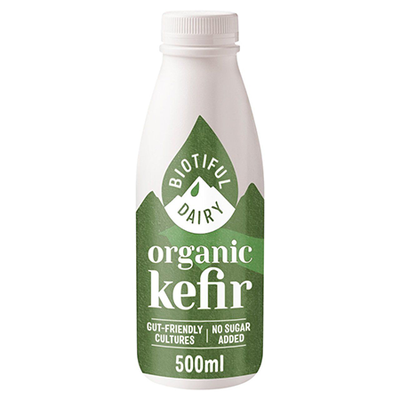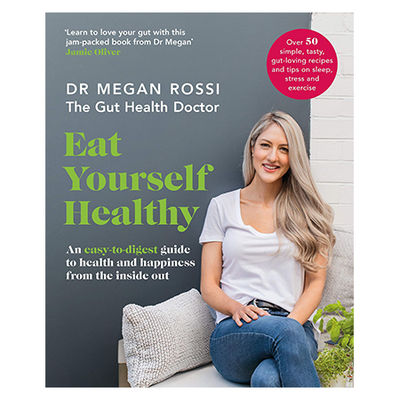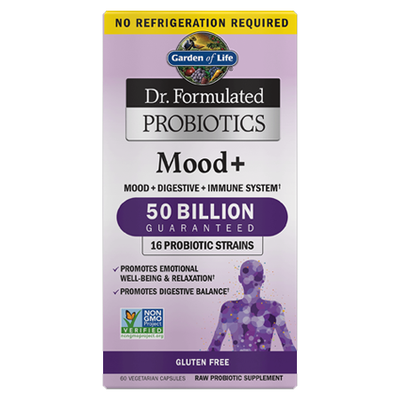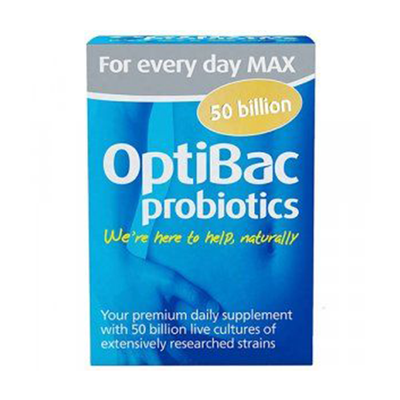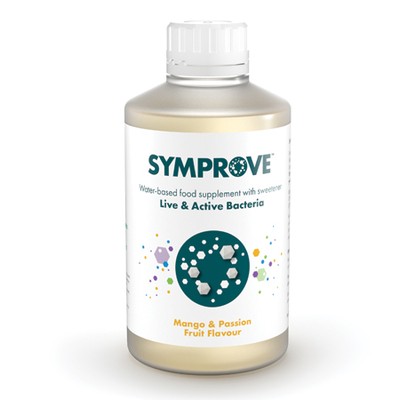
How Your Gut Affects Your Mood
So, can you tell us exactly what the connection is between your gut and your brain?
It all comes down to the gut-brain axis, explains nutritionist Rebecca Pilkington. “Your gut and brain are connected by the vagus nerve, one of the biggest nerves in the body that’s essentially an information superhighway,” she says. This two-way line of communication means your brain, gut and hormones related to stress and anxiety are all linked. This explains why we feel butterflies in our stomach when faced with certain situations, for example, and even goes as far as to explain the connection between stress and IBS. On the one hand, stress can trigger a chemical reaction in the body, which can affect the microbiome, while uncomfortable IBS symptoms can trigger feelings of stress, anxiety or depression. Pilkington adds that an unhealthy gut can lead to inflammation, believed to be one of the biggest causes of depression, and that IBS has been consistently linked to stress.
How exactly does stress affect the gut?
Studies show stress shifts the delicate balance of your microbiome, which can manifest itself in various ways. For example, if you’ve gone through a particularly stressful life event (e.g. if you’ve moved house, changed jobs or gone through a bereavement or divorce), you may have noticed you were more prone to catching sniffles and other bugs. This is because your gut is inextricably linked to your immune system, with 70% of your immunity situated in your digestive tract. At the same time, 95% of serotonin, the body’s happy hormone, is created in the gut, as well as mood-boosting dopamine. If gut bacteria is out of whack, this can fuel the gut-brain feedback loop, sending our mood, and immunity, on a downward spiral.
Okay. What can you do if you suspect your gut is out of balance?
As Dr Megan Rossi, aka The Gut Health Doctor, explains, tackling stress should be your number one priority if you are suffering from regular constipation, bloating, gas, constipation or heartburn. “You can have the ultimate gut-boosting diet, but if your stress levels are through the roof and you’re not sleeping well, your gut health will likely pay the price.” Her top tip? “To combat stress and rewire the gut-brain axis, try doing 15 minutes a day of meditation, or using a mindfulness app, which can make a significant difference after just eight weeks. For those with IBS, gut-directed yoga can be equally as effective as diet intervention for reducing symptoms.”
And what about diet?
According to Rossi, diversity is key when it comes to eating for optimal gut health and better mental health. “If I had one piece of advice, it would be to eat as much variety of plant-based foods as you can – the more variety the better. Aim for 30 different plant-based foods a week across all six plant-based food groups (including fruits, vegetables, wholegrains, legumes, nuts and seeds). Each different plant food contains different fibres and chemicals, which feed a more diverse range of gut bacteria, and having a more diverse microbiome is linked to better long-term health, both physical and mental. It may sound daunting, but it quickly adds up with simple swaps, such as having a handful of mixed nuts instead of just almonds, going for the tin of mixed beans with more than just one type, and having the green, yellow and orange peppers rather than just red in your stir-fry.” How you eat matters, too. Nutritional therapist and gut expert Eve Kalinik recommends taking your time over your meals to engage with the food in front of you without the distraction of devices. “You will notice a huge change in the way your gut feels as well as how satisfied you are after meals if you just take a bit more time with your plate,” she says.
What about probiotics – are they worth it?
Yes and no, explains Kalinik, who believes some probiotics are better than others. “It’s important to get at least 1 billion CFUs (which stands for colony-forming units), but these numbers are only as good as their delivery system. Survival of the microbes in these formulas is a key point and why I recommend Symprove, a liquid-based probiotic, to my clients.” As a general rule, Kalinik believes we should all be adding more fermented foods to our diet, including kefir, yogurt, cheese, sauerkraut and kimchi too.
The bottom line?
While there’s still much to uncover about gut health, the experts are adamant that what’s happening in the gut has a huge impact on mental health, and vice versa. The happier your tummy is, the happier you’ll feel – remember, you really are what you eat.
Supercharge your gut health and happiness with our edit of the best tummy-boosting products…
DISCLAIMER: We endeavour to always credit the correct original source of every image we use. If you think a credit may be incorrect, please contact us at info@sheerluxe.com.
